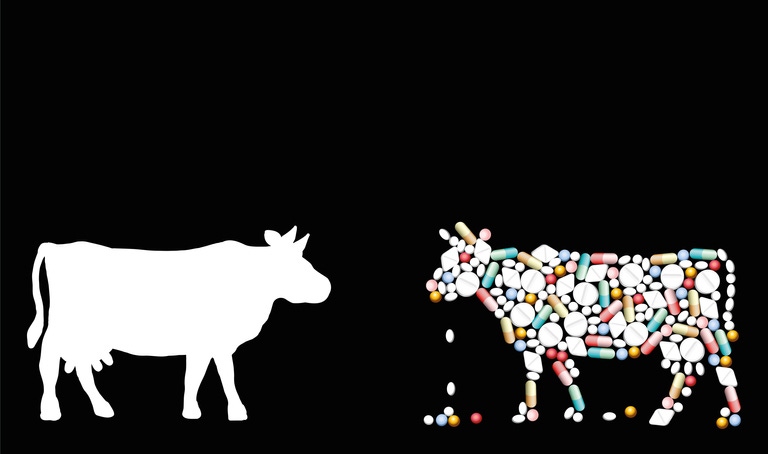Poor industry communication in the past has increased consumer fears around antibiotic use in animal agriculture. According to panelists at the recently held National Institute for Animal Agriculture Annual Antibiotics Symposium, farm tours and engaging with social media influencers are excellent ways to communicate effectively and win back consumer confidence on antibiotic use on-farm.
December 18, 2020

Jargon confuses consumers
Terri Moore of the American Farm Bureau Federation outlined how antibiotic resistance and antibiotic residues in meat are a growing concern among U.S consumers. “We tried to allay these fears with scientific talk in the past, but trust was lost in the jargon as many consumers just don’t understand what antibiotics and antimicrobials even are,” Moore explained.
Consumer concern has resulted in several nationwide fast-food outlets adjusting their meat purchases and marketing “antibiotic free” or “never treated with antibiotics” labels. People falsely believe “antibiotic free” farming is better for animals, says Moore.
This mindset was clearly highlighted to her when a restaurant chain CEO explained his company’s move to “antibiotic free” food by saying; “We did it because it was the right thing to do for the animals, right?”
Aligning values
Educating consumers and food service buyers on how animal antibiotics are only used to prevent pain and suffering in animals is crucial, says Moore. “Values are 3 to 5 times more powerful than facts when building trust, so our industry needs to lead with our values on reducing animal pain and suffering rather than the scientific jargon.”
As seen through the phasing out of growth promotors, consumer perception and demands have the ability to dictate what happens at farm level, regardless of the scientific merit of the demands.
Nowadays, society is becoming more tribal and voices from our tribe are respected more than institutional authority. Adjusting how antibiotics are discussed can help consumers feel that people in agriculture are part of their tribe and not just figures of scientific authority.
“For example, a veterinarian saying, ‘I’m a mother, and feeding my kids healthy food is important to me, and my measured use of antibiotics helps me to keep animals and the food supply safe and healthy.’ This type of story is much more powerful than pure scientific language,” Moore says.
Influence new tribes
Claire King, National Pork Board director of communications, explained how using social media influencers to share the story of safe antibiotic use in hog farms has been a great success. “On-farm tours with social media influencers is helping us reach a new audience and building trust, especially with a younger audience,” King says.
Many Generation Z kids believe that the social media influencers they follow online know them better than their personal friends or family. The goal of a good farm tour for King and her team is to show visitors the entire day-to-day operation of the farm in full transparency and leave the visitors feeling confident that they can answer questions about the farm operations in future conversations with their tribe/peer group.
“In surveys of farm tours, we can show we have moved the vast majority of visitors from feeling ‘unfavorable’ toward antibiotic use at the beginning of the tour, to feeling ‘extremely favorable’ at the end of the tour having learned about antibiotic safe practice directly from the farmer,” King says.
Four steps are key to ensuring a positive outcome from a farm tour—preparation, communication, transparency and expertise. “When we have our full team of experts such as the farmer, vet and agronomist prepared to talk openly and honestly with our social media influencers, we can have a very successful outcome from the tour,” King says.
Cox is a dairy producer and freelance beef/dairy writer based in Missouri. The opinions of the author are not necessarily those of beefmagazine.com or Farm Progress. The opinions of the author are not necessarily those of beefmagazine.com or Farm Progress.
You May Also Like



